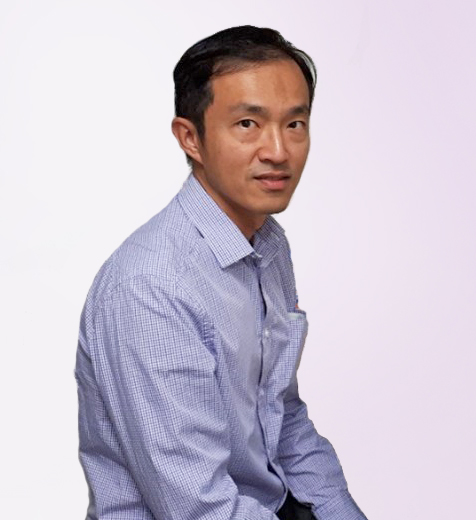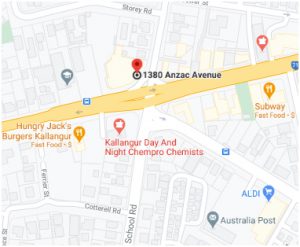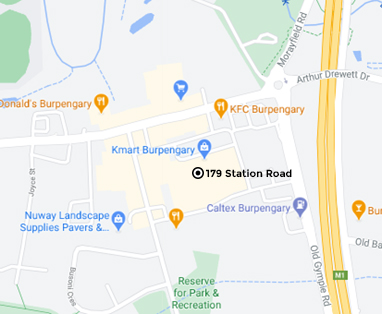
Dietetics
Healthy Eating
Helping you reach your health related goals
When you eat well, you live well. Dietitians are qualified health practitioners who specialise in diet and nutrition (dietetics). Their services can assist you in overcoming health barriers that may make it hard for you to reach your optimal health alone. A dietitian can help you:
- learn more about nutrition, develop meal plans & eat healthier,
- lose weight or gain weight,
- overcome an eating disorder,
- fuel for athletic performance,
- manage diabetes – type 1, type 2, gestational
- manage healthy pregnancy: plan antenatal & postpartum diets,
- manage food allergies & intolerances,
- assist with the management of a disability,
- manage digestive conditions (Irritable Bowel, Inflammatory Bowel Disease),
Book an initial consult with our Dietitian to discuss your needs. Health fund rebates and bulk-billing are available. Terms and conditions apply*.
NDIS
Are you looking for a dietitian that can assist you or your client under the National Disability Insurance Scheme (NDIS)?
We can help! As an approved NDIA provider, our dietitian can offer assistance to agency, plan and self-managed NDIS participants under the following support categories:- Therapeutic Supports: Improved Health and Well Being
- Therapeutic Supports: Improved Daily Living Skills
DVA
DVA Registered Provider
Our Dietitian is a registered provider with the Department of Veterans Affairs (DVA). DVA Gold card holders are entitled to bulk-billed dietitian consultations. If you are an eligible DVA Gold Card holder, please see your GP prior to your consult to receive a DVA referral form. Home visits can also be arranged if required.Referrals/Billing
No Referral Needed
Although we see many clients through referrals from their doctor, a referral is not essential . You can book a consult without one. However, some rebates may be different without a referral. Generally, most of our clients are entitled to either a Medicare, NDIS, Department of Veterans Affairs (DVA) or Private Health Fund rebate. Conditions that apply are:- GP care plan required for Medicare bulk billing
- NDIS contract with Dietitian required for NDIS funding
- GP DVA referral required for DVA Gold card bulk billing
- Private Health Fund rebates will vary depending on your health insurance plan

Dennis Kok
Dennis is passionate about supporting and empowering clients to achieve their health-related goals. with interest in Gastrointestinal disease and Cardiovascular disease, he is available to help patients with:- Irritable bowel syndrome & inflammatory bowel disease.
- Food allergies and intolerance
- Functional constipation
- High cholesterol
- Coeliac disease To further assist patients he can also help with:
- Kids nutrition
- Implementing the FODMAP diet
- Elimination diets for food intolerance
- Reintroduction diets
- Affordable meal prep
- Reading nutrition labels
- Food shopping skills
Weight Loss
Many people want to know how to lose weight.
Achieving and maintaining a healthy weight is often recommended to manage a range of conditions and diseases in order to optimise health and prevent the worsening of conditions in the future. But finding the right information can be difficult. For accurate and evidence based advice that is best suited to your circumstances, speaking to a qualified health provider is recommended. An accredited practising dietitian (APD) can help you make the right changes to your diet and lifestyle to help you lose weight, maintain a healthy weight or choose nourishing foods. They are also there to support you through your journey, so you can maintain a healthy weight with sustainable changes and not fad diets that do more harm than good. Our dietitian can help you with:- Healthy eating plans for weight loss
- Menu plans for food allergies and intolerance
- Menu plans for nutrition and healthy aging
- Family friendly meal planning & prep at home
- Changing your shopping habits
- Eating-out healthily
Eating Disorders
Eating disorders are serious medical and psychological conditions that take different forms across different demographics.
A person with an eating disorder often views themselves negatively in terms of weight, shape and food consumption. These views develop into the harmful eating practices and behaviours we identify with eating disorders. However, the root of an eating disorder are the mental health conditions and harmful coping strategies that manifested the behaviours. Eating disorders are often kept private and hidden, so they can be hard to identify in the early stages. Many eating disorders will build over time, perhaps appearing as a fad diet at first, before the behaviours become more extreme. They can be particularly difficult to identify in children and adolescents. There are several types of eating disorders which are generally categorised by their behaviours.Eating disorder symptoms or behaviours include:
- Starvation (Anorexia)
- Vomiting (Bulimia)
- Binge eating
- Compulsive exercise and
- Abuse of diuretics/laxatives/fitness supplements
Food Allergies Vs Food Intolerance
Food Allergy: A food allergy is when the immune system reacts to a food (allergen), which would usually be harmless.
The immune system then tries to fight off the allergen, which results in symptoms. Symptoms of an allergic reaction can include:- vomiting
- belly pain
- facial swelling
- throat tightness
- hoarseness
- coughing
- breathing problems
- a drop in blood pressure
Food Intolerance: A food intolerance describes the digestive systems response when it cannot digest or metabolise food that has been eaten.
Foods that irritate the digestive system cause symptoms such as:- stomach pain,
- bloating,
- gas/flatulence,
- diarrhoea,
- irritable bowel syndrome (IBS),
- rashes,
- hives,
- recurrent mouth ulcers or
- headaches. Food intolerances usually have an intake threshold, meaning an individual with an intolerance can consume small amounts of the food without feeling symptoms, however if they were to have a larger serve this would cause symptoms to develop. Foods/food products that typically cause intolerance include lactose, readily fermented carbohydrates such as fructose, polyols, sucrose, coffee, sulphites, MSG and amines. If you often experience such symptoms it would be worth while discussing this with your Doctor or Dietitian to shed some light on what may be causing the problem and how it could be managed.
Frequently Asked Questions
What do I do if I think a friend/family member has an eating disorder?
Because eating disorders are associated with mental health conditions, your friend/family member may be feeling very self-conscious or ashamed of the condition, if they even recognise it as an eating disorder. Many people will refuse to acknowledge the condition altogether. So this can make it very difficult to convince them to seek help. If your friend/family member is denying that anything is wrong with them, then using a different approach may help. Doctors are often associated with something being wrong, but a Dietitian is often seen as someone who helps you lose weight or eat better. So you may be able to guide your loved one into seeing a Dietitian on that grounds. With knowledge and experience in eating disorders, they can help you try to facilitate the recovery process. Learn more about eating disorders at Eating Disorders Queensland.What is a healthy weight for me?
A healthy weight range is determined by several factors including height, body type, and pre-existing conditions like eating disorders, diabetes, thyroid conditions or pregnancy. So healthy weight ranges are different for each person. A healthy weight for your friend, may not be a healthy weight for you. It is also common for there to be a significant difference between what you want to weigh and what you should weigh. Or how fast you want your weight to change, compared to how fast it should change. Your dietitian can help you set healthy and realistic goals. So you can avoid the negative health risks associated with extreme weight fluctuations and unhealthy weights. Book an initial Dietetic consult and receive a customised weight loss plan to help you reach your goals.How much should I be eating?
Portion sizes and calorie counts are not universal – differences in age, gender and activity level all have an impact on how much an individual should eat. Using inappropriate portion sizes and calorie counts or irregular dieting and fasting can be harmful. Make sure any advice you take is based on your specific circumstances. Or you could be eating the wrong amount for what you need. Book an initial Dietetic consult to receive customised portion and nutrition plans to suit your lifestyle.Do I have food related allergies/sensitivities?
If you notice discomfort after eating (such as a tingling/itch in the mouth, bloating, nausea, diarrhoea, dizziness, rapid heartbeat or a skin rash or redness), it could be the result of a food allergy or intolerance. Both food allergies and food intolerance can develop later life. Bringing with them symptoms you may not be familiar with. The key deference between a food allergy and a food intolerance is the reaction itself. Food allergies cause an immune system reaction that will affect more than just your ‘gut,’ such as the skin . They can be or become very severe and even life-threatening. On the other hand, food intolerance or sensitivities will generally be limited to digestive issues like bloating, cramping and diarrhoea. If you have a recurring discomfort during or after eating speak to a GP or Dietitian to shed some light what may be causing the problem.
Kallangur Clinic
A: 1380 Anzac Ave Kallangur QLD 4503
Service Information
- Telehealth consults available

Burpengary Clinic
A: 179 Station Rd Burpengary QLD 4505
Service Information
- Telehealth consults available
- No referral needed for private patients
